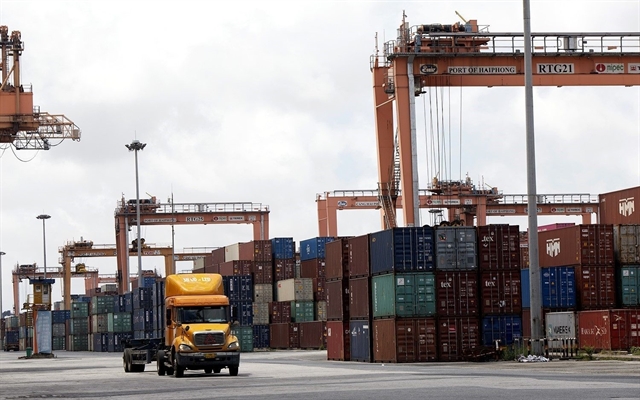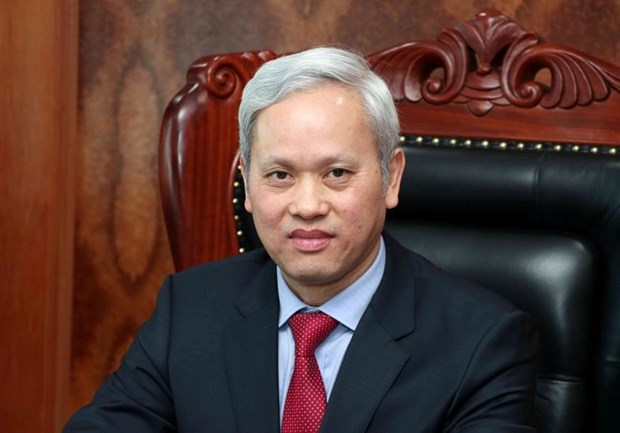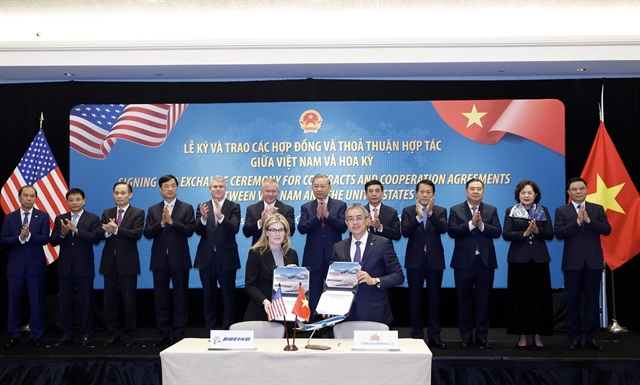 Economy
Economy

Nguyễn Bích Lâm, former director of the General Statistics Office, spoke to Vietnam News Agency about rising petrol prices.

|
| Nguyễn Bích Lâm, former General Statistics Office director. VNA/VNS Photo |
In just one month, retail petrol prices on the domestic market have increased three consecutive times, with the latest rise on February 11. Escalating oil and gas prices not only increase the cost of goods and services, but also the CPI. This could lead to Việt Nam not achieving its growth target and losing budget revenue as inflation increases.
Nguyễn Bích Lâm, former director of the General Statistics Office, spoke to Vietnam News Agency about these issues.
What factors caused gasoline prices to rise to current levels?
Crude oil prices have risen more than 60 per cent over the past year, reaching US$94 per barrel, but operators have not increased output.
The Organisation of the Petroleum Exporting Countries and its allies (OPEC+) has announced that it will keep its plan to increase production to benefit from high prices, instead of increasing oil output as per the demands of major oil-consuming countries such as the US and India.
The world is suffering from an energy crisis and facing an early cold and harsh winter, so countries are increasing their petroleum reserves, causing oil prices to increase.
At present, economies are gradually recovering in production and business activities, travel, transportation, and tourism because many countries around the world use COVID-19 green cards while COVID-19 is gradually considered more like the common flu because of widespread vaccination.
On February 7, 2022, oil prices set a new seven-year peak due to fears of escalating political tensions and a strong recovery in demand, causing a widening gap between supply and demand, so inventory at fuel hubs globally hit multi-year lows.
In the future, the world petroleum market is still volatile and the petrol price is likely to increase. The world's important energy organisations, including OPEC, the International Energy Organisation and the US Energy Information Administration, all forecast crude oil prices to reach $100 a barrel by this summer.
The domestic gasoline price depends greatly on the world price because domestic petroleum supply does not meet local demand. Due to financial difficulties, the Nghi Sơn oil refinery has reduced output, causing domestic petroleum supply to be reduced and interrupted.
How does the high petrol price affect domestic production, business and the consumer price index?
Việt Nam's economy depends heavily on imported raw materials, accounting for 37 per cent of the total cost of raw materials for the whole economy. When the world gasoline price increases, it increased the price of imported and domestic raw materials.
The rising global oil and gas prices will affect domestic production as oil and gas cost makes up around 3.52 per cent of the economy's total production costs, thus pushing up product prices. The impact can be felt clearly in such areas as fisheries and transportation.
Moreover, high oil and gas prices will exacerbate pressure on the consumer price index (CPI), weaken the competitiveness of made-in-Vietnam products and hamper economic growth indirectly.
For Việt Nam’s economy, a 10 per cent increase in oil and gas prices results in a 0.5 per cent decrease in the national gross domestic product (GDP), and a 0.36 percentage point rise in the CPI.
As gasoline prices have continued to rise, it has reduced the efficiency of the 2 per cent value-added tax (VAT) cut and may invalidate this policy which is being implemented to stimulate consumption and reduce inflation pressures. This could lead to not achieving the growth target and losing budget revenue, as inflation still increases.
Spending on petroleum accounts for 1.5 per cent of total household spending. Due to higher gasoline prices, households will restructure and cut spending on some items, which reduces aggregate demand in the economy.
What are the solutions to cope with the high gasoline price and minimise the negative impact on economic growth and inflation?
The fourth wave of the COVID-19 pandemic was the major reason for Việt Nam's lower economic growth in 2021 than the set target. This year it is important in creating the foundations for the 2021-2025 five-year plan.
The socio-economic development goals in 2022 include the growth of gross domestic product at about 6-6.5 per cent; and an average CPI of about 4 per cent.
However, global and domestic economies are forecast to face more difficulties and challenges. World economic growth in 2022 is forecast to be lower than in 2021 and the risks continue to increase.
On the domestic economy, the resilience and resources of the State, businesses and people have decreased, and inflation pressure remains high.
When building quarterly and yearly scenarios of GDP growth and control of inflation at 4 per cent, the fluctuation of petrol prices needs special attention to minimise negative impacts on growth and inflation. Fiscal and monetary policy needs to be flexible.
For Việt Nam, petroleum is one of the strategic commodities whose price is managed by the State, and the selling price is managed to ensure the interests of the State, businesses and people.
The Ministry of Industry and Trade is requested to follow world petroleum prices, improve forecasting capacity and quality, and coordinate with the Ministry of Finance in analysing price and tax factors to adjust taxes relating to petroleum.
At the same time, the two ministries and related enterprises have evaluated and smoothly used the Petroleum Price Stabilisation Fund.
They have fixed the suitable selling price for the domestic market based on the world price to ensure the interests of businesses and the people, and to contribute to promoting the efficiency of the Government's solutions for economic recovery and development. This will partly reduce the negative impact of higher gasoline prices on inflation and economic growth.
The Ministry of Industry and Trade needs to have a general solution to ensure a long-term petroleum supply for the economy. The Government should improve the capacity of petroleum reserves to meet the demand of the economy in the long term and reduce dependence on the world petroleum supply and the harmful effects of high world petroleum prices on the domestic economy.
The petrol prices are forecast to continue increasing and stay at high levels in 2022. The Ministry of Industry and Trade, the Ministry of Finance and businesses need to closely follow the world petrol market and the fluctuation of petrol prices to have flexible solutions on coping with the rising world oil price.
At the same time, Việt Nam needs to improve the capacity of domestic oil exploitation and refining to minimise adverse impacts on economic growth and inflation in 2022 and the years ahead. VNS




